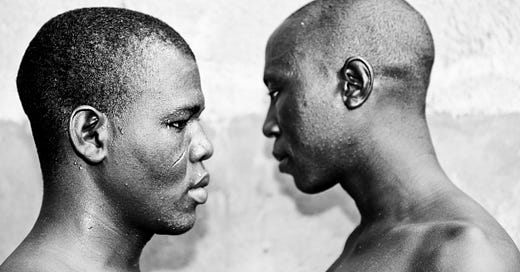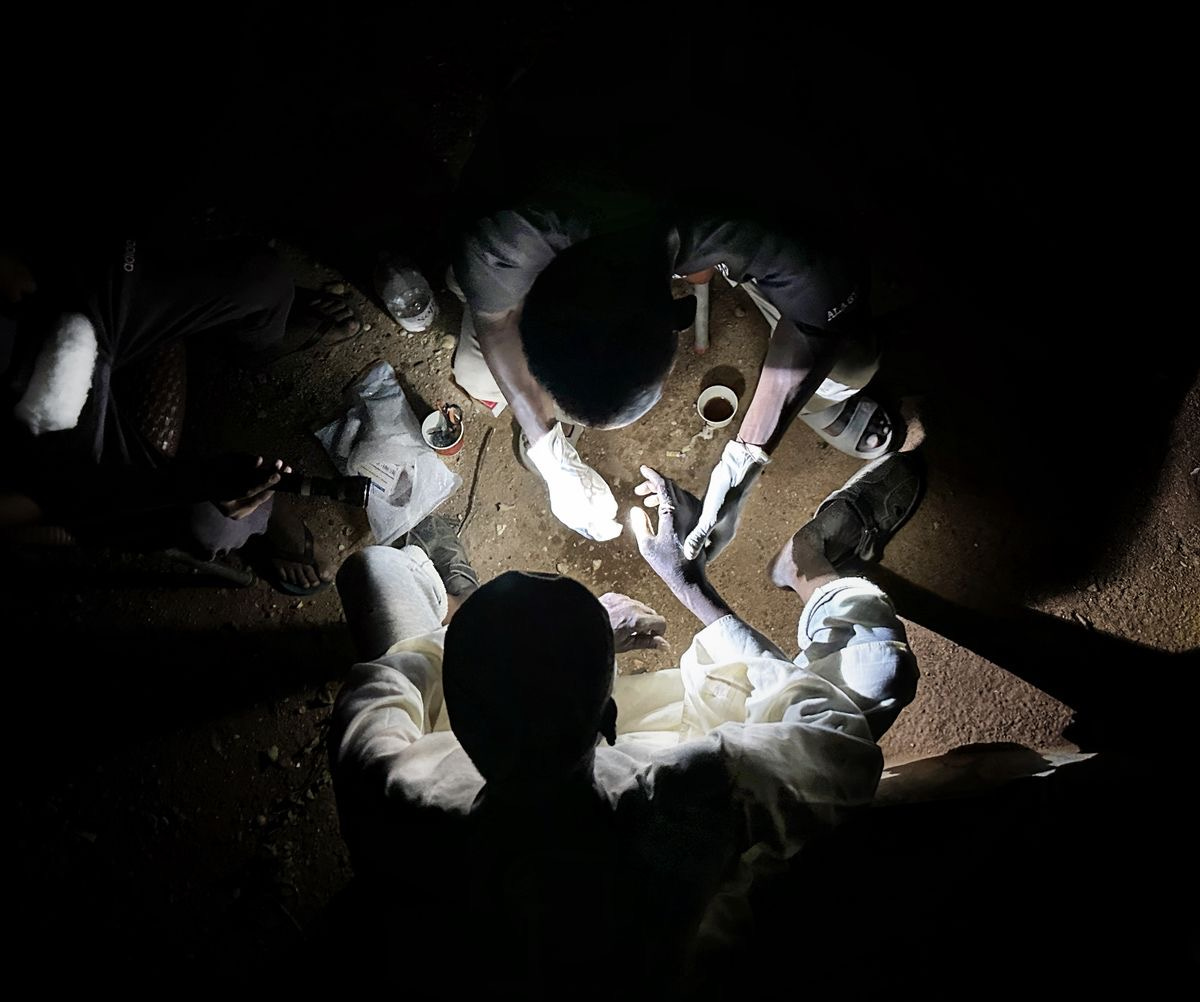However you look, you can only catch a hint of their eyes. The faces they tender are alert, austere, alive. The camera’s probe is intimate, managing to catch hints of sweat, some rash, inch-wide folds of skin, a bulge at the back of the head. That their faces are seen from the side—indicating a partial knowledge of what they might seem like in full—sharpens the austere tone of the picture. From whom is a direct gaze being withdrawn?
— Emmanuel Iduma
“The boys in this image could have been me!”
This image was taken in my village in Nigeria. For 6 years now I have been documenting young boys and men who are doing all kinds of manual work to survive. They work from morning to night to take care of their loved ones and many of these workers did not finish their primary education because their parents did not have the money to pay for their school fees. My desire is to honor them and photograph them with both a humanistic and compassionate eye as well as a desire to dignify and embolden them through imagery.
Using the wall as a backdrop only enhances this theatricality, and so this image is portraying a very subtle drama that exists more inside the minds of my subjects, rather than outside them and around them. I have chosen to represent these individuals with portraits because the portraits show me the vulnerability of their souls. My heart goes out to all workers who die defending their pride and humanity, earning their daily bread. If the government could take better care of all the country’s workers, our harvest would be great.
I choose this image because I am from a working class family. I know and feel the problems. The boys in this image could have been me! Work is very essential in Nigeria and a man without work cannot be trusted. My father worked hard as a salesman until he died of a stroke at the age of 53 and my grandfather died in the army at the age of 50.
I am a documentary photographer and I chronicle the truth the way I see it.
— Cletus Nwadike
About Cletus Nwadike
Cletus Nelson Nwadike is a Sweden-based Nigerian photographer and a poet. He studied photography as a visual communication at Jönköping University in Sweden. His work has been recognized by the Sony World Photography Awards, and the Global Peace Photo Award, for which he won the Peace Image of the Year 2017. He has exhibited his work at Photo Israel and Helsinki Fotofestival. More of his work can be found on his website, and on Instagram.
LAST WEEK — “Steadfastness” by Alaa Eldin Safi
This photograph was taken in Khartoum during the last war. It shows our neighbor who was injured in the recent shelling on Khartoum, and how we are trying to treat his hand without electricity and some simple medical equipment in the house because we had no means of transportation to transfer him to the hospital, as well as the deteriorating security situation given the presence of the Rapid Support Militia.
This is the 130th edition of this publication. The newsletter also read on web (best for viewing images), and via the Substack iOS/Android apps.
TENDER PHOTO is a collaborative digital archive and publishing platform of contemporary African photography, edited by Emmanuel Iduma. Our aim is to use photography to engage with life on the African continent. We publish narratives about the people, places, and events pictured in photographs, contributing to nuanced and layered perceptions.
Every Wednesday we feature a photograph, a short caption about it, and a statement from the photographer. Last year, we published commentaries or photo-essays in response to photographs previously featured on the newsletter, including CORRESPONDENCES, CONCORDANCE, KINDRED, INDEX, and AFFINITIES. Our ongoing Friday series is dedicated to the 5 photographers featured in Process Projected, Amsterdam. See last week’s feature on the work of Abdul Hamid Kanu here.
Thank you for reading. If this newsletter was shared with you, consider subscribing, or forward to a friend. Please whitelist the newsletter to ensure you never miss it.





Pain is easily visible on their faces.